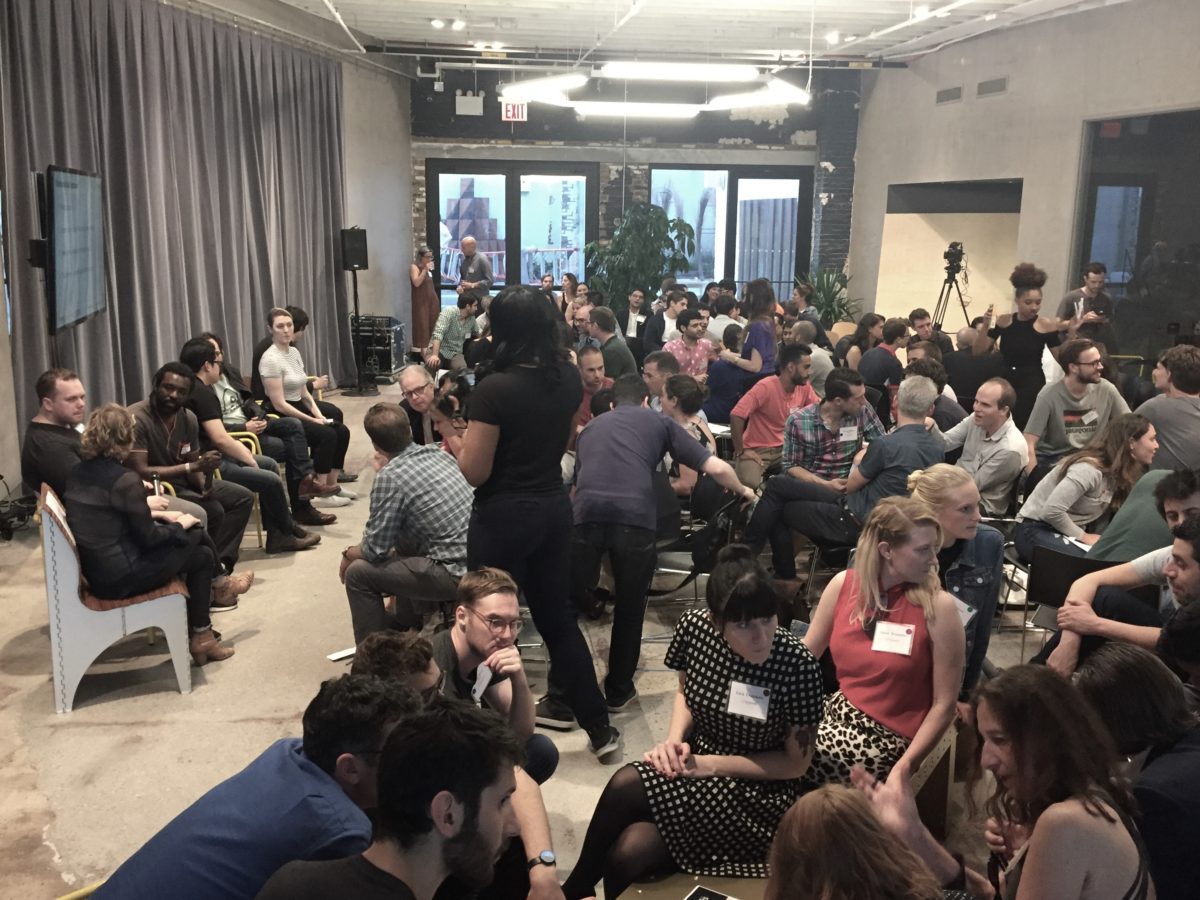How do you make sure your overseas manufacturer isn’t stealing your design and selling it to knockoffs? How finished does your product have to be before you start taking orders?
These were questions that came up at “Mastering Manufacturing from Design to Fulfillment,” a panel discussion organized by Futureworks NYC last night. The event, which was held at Greenpoint design space A/D/O, was held to welcome Futureworks NYC’s new cohort of New York-based manufacturing and hardware companies.
Futureworks NYC is a project by the New York Economic Development Corporation intended to spur growth in the city’s industrial sector. Each of the panelists ran a company that went through the program. Questions came from audience members. Some responses have been omitted and others edited for clarity.
Because of our limited resources, how far along do we have to be to run an effective pilot knowing we’ll eventually have to switch from sourced parts to custom ones?
Mike Kim, cofounder of StrongArm Technologies: “The question we always inch back and forth from is: What’s good enough? If whatever I’ve built is able to solve the problem, then that’s good enough. Can it do the main functionality of explaining what it could be? But I think that’s one of the main aspects we struggle with.”
What are your thoughts on foreign vs. stateside manufacturing?
Nicolas Vansnick, cofounder of Bot Factory: “For everything that’s custom, we look for someone in the states. It allows us to get the product super quick and allows us to talk to the manufacturer if there’s an issue. The time difference can be a real pain. It’s the tradeoff of quality and speed vs. low cost and delays. There are a lot of manufacturers in the midwest and elsewhere who are doing amazing work.”
Todd Schechter, founder of Dog Parker: “Manufacturing, for us at least, isn’t this thing that happens elsewhere that we’re not involved with. Anyone in the room should expect to be really hands on in the process. Doing that locally is way easier than leaving and living in China for three months during the process.”
Are there systems in place that help with planning inventory in order to plan out the shipping timeline?
Alex Tosti, cofounder of blink blink: “We’ve just spent a lot of time building an Excel. We know that when our inventory is down to a certain level we have to order more.”
Vansnick: “We’re using Odoo. It’s an open source ERP system you can install on your own servers and it basically tracks your entire inventory.”
Kim: “If you use Quickbooks, there’s a plugin called SOS Inventory which is cost effective, gets the job done and is something that’s off the shelf.”
How complete does your product need to be to get your first order?
Keith Kirkland, founder of WearWorks: “Right now we have a device that can navigate you through the city, and it works and it’s great. It doesn’t have to be that complete at all. You just have to sell the vision and the story and after that people will just figure it out on their own.”
Jessica Banks, founder of Rock Paper Robot: “For a chair like this, we really make sure it’s all tested. I mean, there’s a reason we’re on iPhone 7 right now. In some way all our products are prototypes. We really test hard though to make sure everything is safe and reliable. Maybe it’s also cause I’m a woman and the onus of shipping something shitty will ruin everything for all women entrepreneurs.”
Vansnick: “There’s an expression I like: ‘If you’re not ashamed of your first product you shipped too late.’”
How do you prevent sneaky manufacturers from stealing your product?
Banks: “Well, you can’t sneaky is sneaky and some people are douchebags. I think most important is to just have a really strong brand presence. I’m really talking about China. Here, you can get provisional patents and they really help. You can also make a low-price version of your own product and undercut the sneaky people, and you can do it faster.”
Before you go...
Please consider supporting Technical.ly to keep our independent journalism strong. Unlike most business-focused media outlets, we don’t have a paywall. Instead, we count on your personal and organizational support.
Join our growing Slack community
Join 5,000 tech professionals and entrepreneurs in our community Slack today!
